

MARIETTA, Ga. | Jun 1, 2020
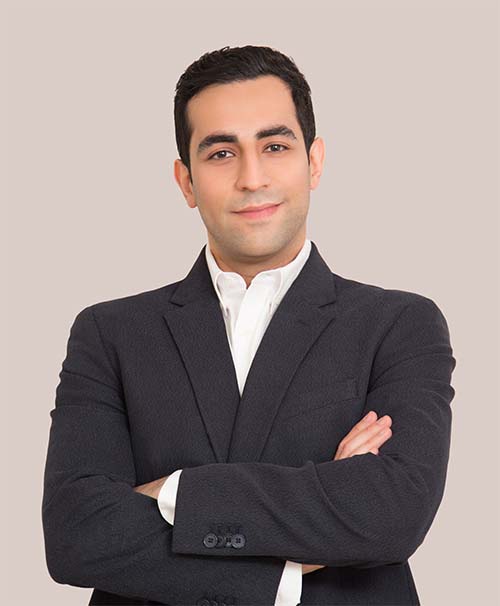
It is no longer a question of if autonomous vehicles will become mainstream, Kennesaw State University professor Mahyar Amirgholy said. It is a now a matter of when.
"We know that autonomous vehicles are going to be here in the next five to 10 years," he said. "Everything is going to change completely. The question we need to be asking is, 'Are we ready for this change?' If we do nothing, there's a chance that traffic condition and air pollution actually get worse in large cities."
An assistant professor of civil engineering in the Southern Polytechnic College of Engineering and Engineering Technology, Amirgholy is deeply involved in several research efforts seeking to address the cooperative control of autonomous vehicles and how the cities of tomorrow can optimize their roadways to improve traffic flow. A guest editor for Sustainability journal’s upcoming special issue “Autonomous Vehicles: Future of Transportation Sustainability,” he has as co-authored and published more than a dozen peer-reviewed articles on traffic automation and multimodal transportation systems and is currently supported by external funding from the Lawrence Berkeley National Laboratory.
In a recent publication, Amirgholy raised questions on how advancements in artificial intelligence and wireless communication technologies can be used to optimize traffic flow at so-called “smart intersections,” which involve communication from autonomous vehicles and cooperative control systems to eliminate queue at urban intersections. In another, he identified potential issues with traffic congestion with an influx of autonomous vehicles on city roadways.
While autonomous electric vehicles are often seen as the eco-friendly option for transportation in the coming years, if not managed properly it could actually result in more pollution, he said. Autonomous vehicles, generally equipped with state-of-the-art sensors, have the ability to travel closely together at a high rate of speed in a method called “platooning.” While it is an efficient method for autonomous vehicles, it means greater traffic volume on city roads already occupied by human-driven vehicles.
“We can look at it and say these are electric cars and therefore don't produce emissions, but there will still be people without electric cars who are now stuck in traffic generating air pollution,” said Amirgholy, who joined Kennesaw State in January after completing a post-doctoral program at Cornell University. “I think the solutions are in new technology. It involves designing new algorithms for our traffic control systems in our cities in order optimize flow. Not with just traffic lights; we could find ways to control the vehicles remotely or through smart intersections so that everything works harmoniously."
As the technical lead on a research project with the Lawrence Berkeley National Laboratory and the Federal Highway Administration, he is helping to develop a modeling tool that more accurately allocates existing road rights-of-way across several modes of transportation, such as buses, personal vehicles, freight trucks and bikes. The project involves clustering cities and rural regions into certain categories called “geotypes,” studying the economic needs of each geotype and ultimately reallocating rights-of-way to optimize use.
"These are big picture questions that politicians and decisionmakers are interested in knowing as they decide on how to allocate funds for certain projects," Amirgholy said.
Though his research is still relatively new at KSU, Amirgholy said he is actively looking for ways to bring his students into the fold. Teaching courses in data collection and probabilistic analysis in engineering, he has been impressed with the quality of questions he receives on a daily basis.
"I've been impressed by the caliber of students I've taught so far, and I'm very much looking forward to continue working with them and involving them in my research," he said.
– Travis Highfield
Submitted photos
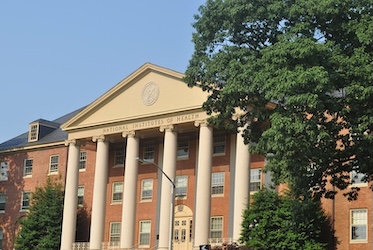
Alumnus builds career in biomedical research at the National Institutes of Health
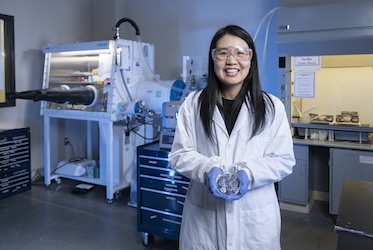
Kennesaw State researcher develops safer, faster solid-state battery design
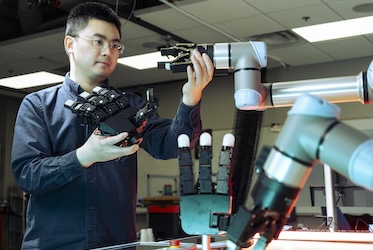
Researcher seeks to help robots have a more human touch
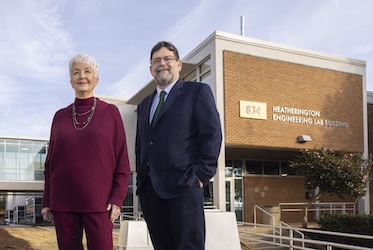
Lawrence Whitman installed as Dale and Ann Heatherington Endowed Chair of Engineering and Engineering Technology
A leader in innovative teaching and learning, Kennesaw State University offers undergraduate, graduate, and doctoral degrees to its more than 51,000 students. Kennesaw State is a member of the University System of Georgia with 11 academic colleges. The university's vibrant campus culture, diverse population, strong global ties, and entrepreneurial spirit draw students from throughout the country and the world. Kennesaw State is a Carnegie-designated doctoral research institution (R2), placing it among an elite group of only 8 percent of U.S. colleges and universities with an R1 or R2 status. For more information, visit kennesaw.edu.